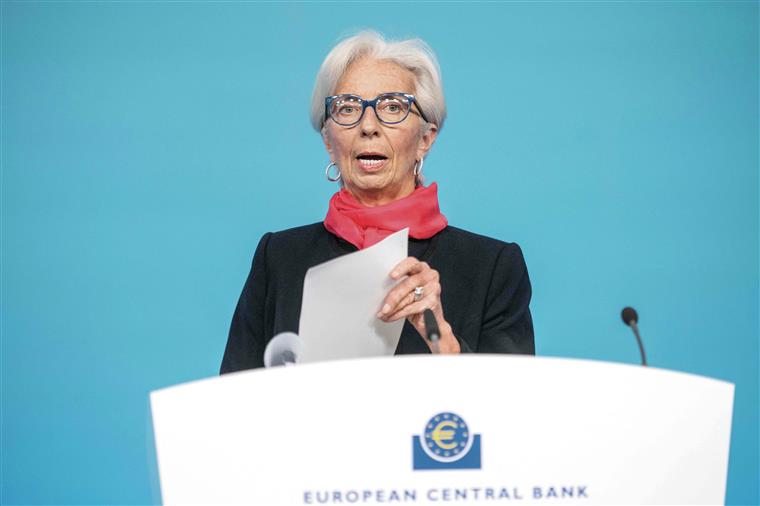The Portuguese economy is showing signs of slowing down against a “high inflationary context”. The alert was issued by the National Institute of Statistics when it was indicated that “the short-term indicators (ICP) related to economic activity from a production perspective that are available for September indicate a slowdown in activity,” after accelerating in August with the resumption of economic activity. An overview of the slowdown recorded between March and July, the lowest rate since March 2021.
The Economic Climate Index, which summarizes stocks of extreme responses to questions on qualitative surveys of businesses, also fell between August and October, “reinforcing the downward movement that began in March and reached its lowest point since April 2021.”
The total amount of local withdrawals, payments for services and purchases at TPA terminals showed an annual growth of 12.9% in October (14.2% in the previous month).
The data comes on the heels of statistics released by the Bank of Portugal on Thursday, which also show that economic activity and private consumption are slowing. The index, which measures economic activity, registered a year-on-year change of 6.2% in September, following an increase of 6.5% in the previous month. And private consumption grew by 2.3%, down from the 2.9% registered in August this year, according to statistics from the foundation led by Mario Centeno.
The manufacturing PPI showed a year-on-year rate of change of 21.6% in October, slowing for the third consecutive month, after posting the highest increase in the current series in July (25.9%).
Excluding the energy component, this indicator increased by 14.7% year on year (15.6% in September). The consumer goods index continued to accelerate, changing from an annual change of 15.3% in September to 15.7% in October.
The annual change in the Consumer Price Index (CPI) was 10.1% in October 2022, the highest rate since May 1992, up 0.8 percentage points (pp) from the previous month.
According to the Employment Survey, the unemployment rate reached 5.8% in the third quarter of 2022, up 0.1 percentage points from the value of the previous quarter (6.1% in the same period). Total employment increased 1.0% compared to the same period in 2021 (1.9% in the second quarter). The average worker’s total monthly gross compensation (per job) increased 4.0% in the third quarter. In real terms, taking the IPC difference as a reference, this bonus decreased by 4.7%.
Warning signs
Just this week, the European Central Bank (ECB) said that low-income people will be hit “very hard” by inflation and interest rate hikes from the end of this year, and even run the risk of being unable to pay their debts.
An alarm that did not surprise the economists contacted by our newspaper. Even Joao Cesar das Nieves said that “the danger is not future, but present,” stressing that “we are already living this reality and that it will get worse in the near future.”
An opinion shared by Paulo Rosa, economist at Banco Carregosa, points to an increased risk of credit default in 2023, as higher interest rates cut household disposable incomes, penalizing those with tighter budgets, already weakened by rising inflation. . “Mortgage loans in Portugal are mostly indexed to Euribor, a variable interest rate that increases as the European Central Bank’s interest rate rises, which increases the cost of borrowing for Portuguese, and puts low-income households into insolvency.”
Nuno Melo, an analyst at XTB, stated that high inflation will continue during the last quarter of this year and throughout 2023. For European governments to take relief measures that should ease the financial situation of these same families. The Portuguese government has already taken some measures, such as the possibility of negotiating housing loans for those who reach an effort rate of 35%. But I am convinced that it will not be enough and that he will have to move on.”

“Wannabe internet buff. Future teen idol. Hardcore zombie guru. Gamer. Avid creator. Entrepreneur. Bacon ninja.”

